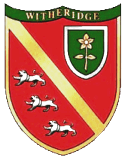

|
This 'Acte for the Reliefe of the Poore' marks the foundation of the Old Poor Laws. Under this Act, the responsibility of the parish was clearly established. The annual parish vestry meeting would elect unpaid Overseers of the poor, who, under the act, had the power to raise money by charging parishioners according to their ability to pay. This charge, called the Poor Rate, was originally a form of income tax, but evolved into a property tax or "rate" based on the value of real estate. Generally, the tenant rather than the owner paid it. Failure to pay could lead to a summons to appear before the Justices, a fine and sometimes prison. By applying the money raised by the Poor Rate, the Overseers were able to provide food and clothing to the poor, and pay for the upkeep of the parish poorhouse. The aims of which were to provide work for adults, apprentice poor children and set them to work, and suppress and punish beggars and vagabonds, in some cases by admitting them to county "Houses of Correction". Thus, every parish was a self-governing body, responsible for its own poor people. Overseers kept account books, which recorded the poor rates collected and the payments made to and on behalf of paupers. Here are some examples from Witheridge in the 1750's.
The Devon and Exeter Hospital (the 'Royal' came later) opened in 1743. It was possible for parishes to subscribe to the new hospital and so become entitled to send patients there. Witheridge was one of first to subscribe. This may have been partly due to the fact the hospital's secretary was Witheridge man, William Chapple. In 1757 the parish was caring for Susannah Milford, and when she became ill they sent her on horseback to the new hospital in Exeter (Exon was the old word). Ambrose Burrow's wife went with her to care for her on the way.
Some of the poor were helped on an annual basis.
Parishes generally did not help those from outside their boundaries, but there were exceptions, as an undated entry reveals two poor sailors were paid 1s. Previous Last Edited 03/07/2006 Copyright © 2000-2006 Witheridge Unless otherwise indicated on the page in question, the photographic images reproduced on this site belong to the Witheridge Archives, and, as such may not be reproduced for commercial purposes without written permission. However, you are welcome to use any of the photographs belonging to the archive for personal and/or non-commercial use. Any material shown as not being owned by the archive may not be reproduced in any form without first receiving written permission from the owner of the material in question. |

